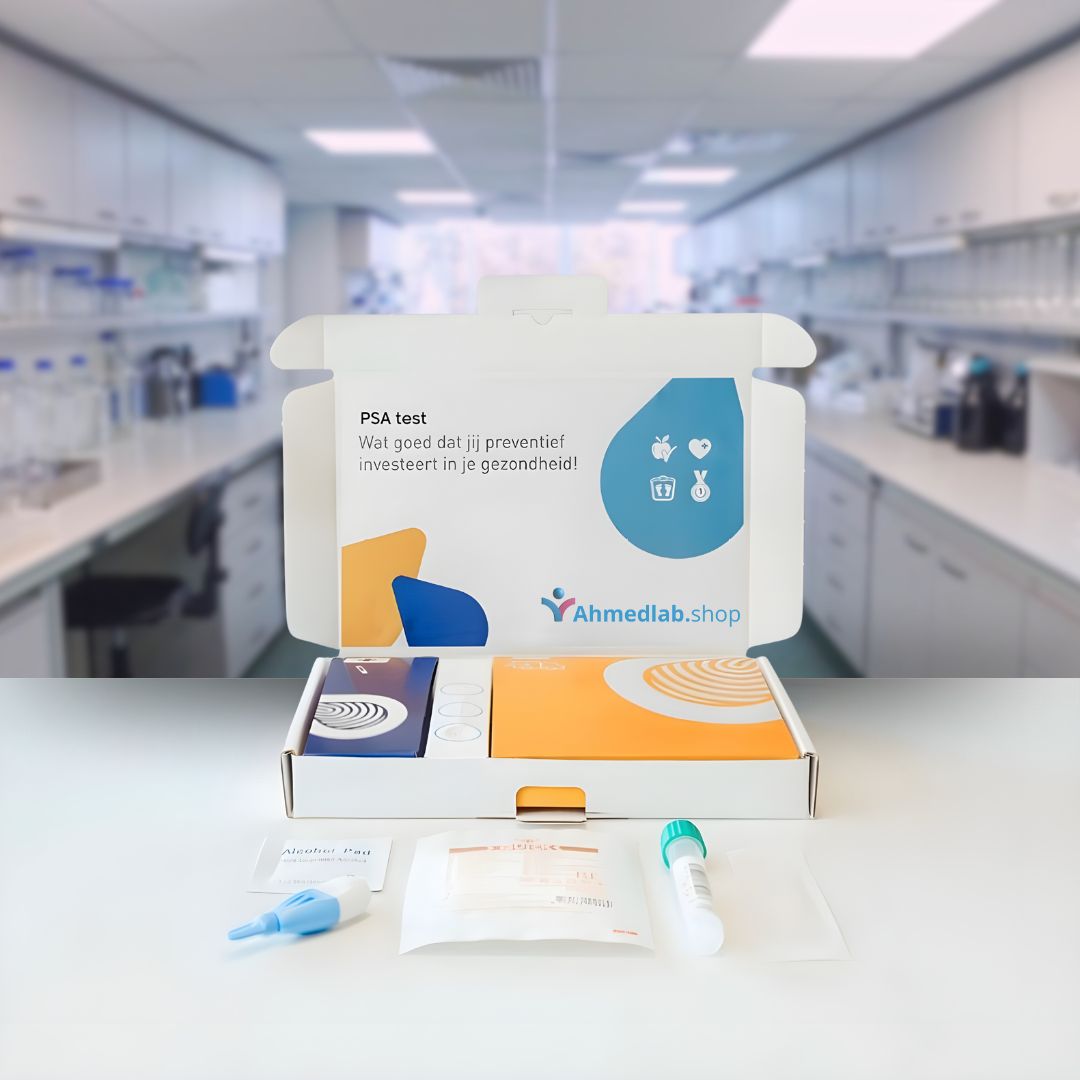PSA test
Measuring PSA levels for prevention or when symptoms occur
PSA stands for Prostate-Specific Antigen a protein that is normally present in small amounts in the blood. It is produced by the glandular tissue of the prostate. When prostate cancer develops, the prostate releases more PSA into the bloodstream, causing the PSA level to rise. A high PSA level can be a sign of prostate cancer, though this is not always the case. Conditions such as prostate inflammation or benign prostate enlargement can also lead to elevated PSA levels.
Test: PSA value (Prostate-Specific Antigen)
Sample: Blood (finger prick)
Explanation:
PSA Level
PSA, or Prostate-Specific Antigen, is a protein produced by the prostate gland and normally found in the blood in very small amounts. When prostate cancer is present, the gland produces more of this protein, resulting in higher PSA levels. However, an elevated PSA reading does not always indicate cancer it can also be caused by a benign enlargement or inflammation of the prostate.
What is the prostate?
The prostate is a small gland surrounding the urethra, located just below the bladder and in front of the rectum. Roughly the size and shape of a chestnut, it produces prostatic fluid, which keeps sperm healthy and helps transport them through the urethra during ejaculation.
Common symptoms of an enlarged prostate:
- Frequent urination with only small amounts of urine each time
- Weaker urine flow or interrupted stream (straining does not improve it)
- Difficulty starting to urinate
- Increased urgency or the need to urinate often
- Dribbling or involuntary leakage after urination
- Having to urinate during the night
- A burning sensation when urinating
- The feeling that the bladder doesn’t empty completely
What is prostate cancer?
Prostate cancer occurs when malignant cells form in the tissue of the prostate. These cancerous cells grow uncontrollably, leading to the development of a tumour. Among men, prostate cancer is the most common form of cancer in the Netherlands alone, more than 10,000 men are diagnosed each year, and around 2,500 die as a result of the disease. For Dutch men, the lifetime risk of being diagnosed with prostate cancer before the age of 75 is about 6.7%.
Prostate cancer generally develops slowly, though it can spread to other parts of the body, most often to the bones or lymph nodes. The chances of recovery depend largely on how advanced the disease is when it is detected.
Age and prostate cancer
It’s important to know that every man has an individual baseline PSA level ideally, every man aged 45 and over should be aware of his own value.
Prostate cancer is more common among older men. Over 70% of those diagnosed are aged 65 or older. The risk increases with age between 10% and 30% of men aged 50–60 have prostate cancer, compared to 50–70% of those aged 70–80.
Prostate cancer and heredity
In around 5–10% of men with prostate cancer, heredity plays a role. This means that two or more close relatives (grandfather, father, brothers, uncles, or cousins) under the age of 55 have also had the disease. Men with a family history of prostate cancer are advised to start testing as early as age 35–40.
Symptoms commonly linked to an enlarged prostate include:
- Frequent urination with small volumes each time
- Weak or interrupted urine stream
- Difficulty starting to urinate
- Frequent urges to urinate
- Dribbling or involuntary urine leakage
- Night-time urination
- Burning or discomfort during urination
- A constant feeling that the bladder isn’t fully empty
Normal PSA values
| Age | PSA value (µg/L) |
| Under 40 years | < 2.0 |
| 40 – 49 years | < 2.5 |
| 50 – 59 years | < 3.5 |
| 60 – 69 years | < 4.5 |
| Over 70 years | < 6.5 |
If your PSA level is elevated, it is recommended that you contact your GP and repeat the test every 3–6 months to monitor any further increase.


